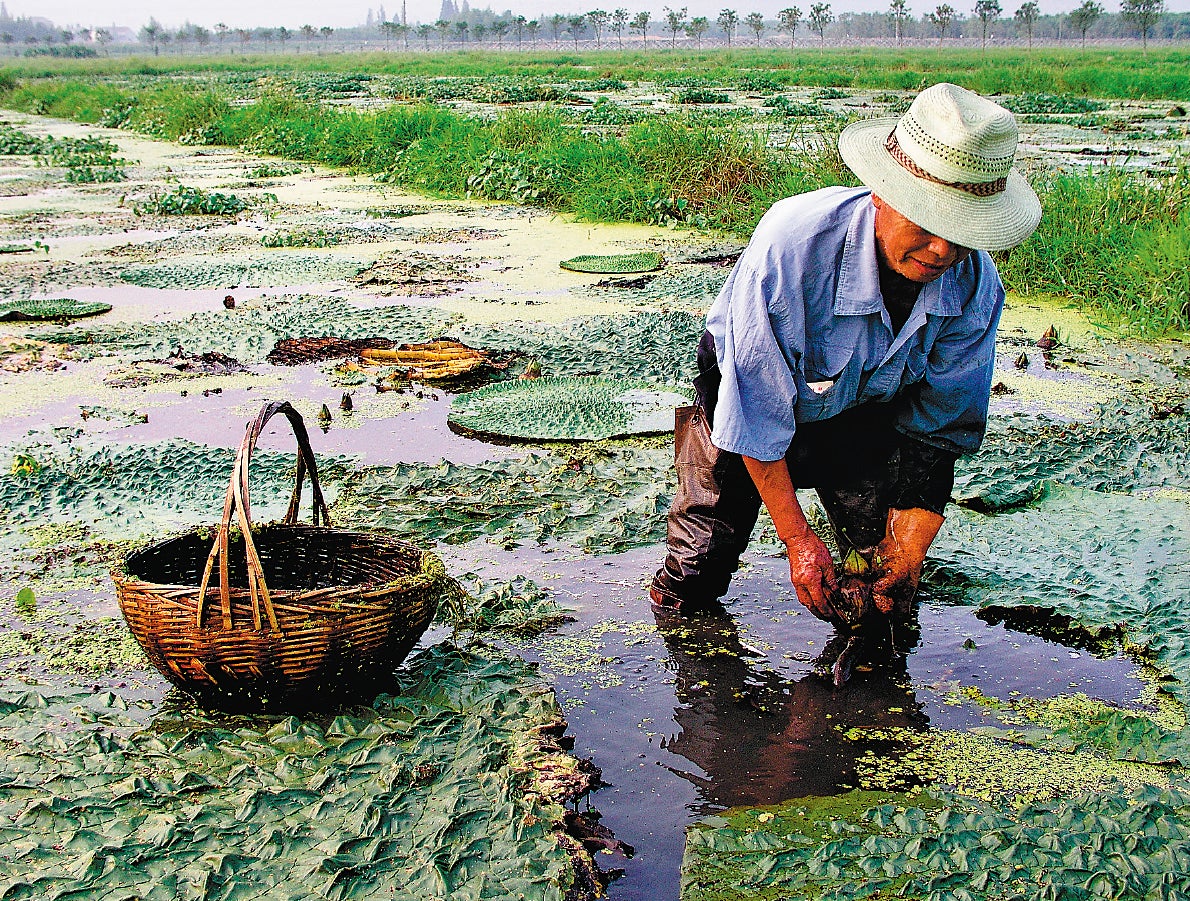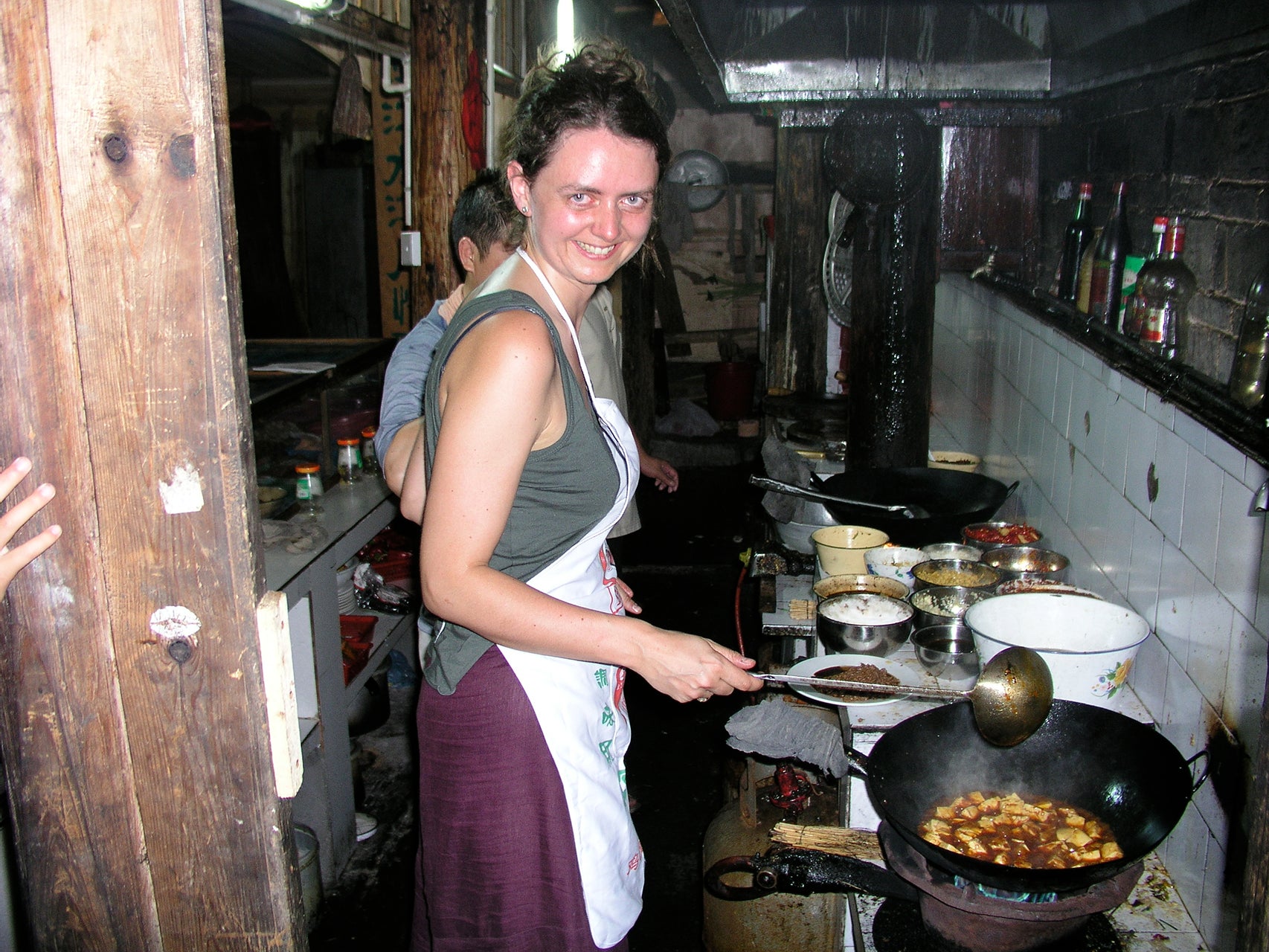A writer of good taste
THE ARTICLES ON THESE PAGES ARE PRODUCED BY CHINA DAILY, WHICH TAKES SOLE RESPONSIBILITY FOR THE CONTENTS

The British gourmet Fuchsia Dunlop’s posts on social media networks, WeChat or Instagram, serve up a diet of humour. Most are about her experience with food from around the world. But since the pandemic broke out in London in February last year she has posted more about her cooking, especially Chinese dishes she made in her kitchen.
She cooks in a very relaxed way, she says, going to the farmers’ market at the weekend to buy seasonal products for everyday cooking – a mixture of Jiangnan (the region south of the Yangtze River), Hunan, Guangdong, and Sichuan dishes.
“For me, there are so many wonderful things about Chinese food. The thing that I find greatest about it is that you can eat food that is both really delicious and incredibly healthy. The Chinese are expert at cooking vegetables, so it’s very comfortable, easy and natural for me to eat Chinese food a lot. Almost every day.”
Growing up in a household in Oxford always filled with exotic flavours from Japan, Turkey, Spain, India and Austria, Dunlop dreamed of becoming a cook when she was little. However, her dream did not start to materialise until she went to Chengdu, Sichuan province, as a university student in 1994. That was when she began learning local cooking skills at the Sichuan Higher Institute of Cuisine, while looking for delicious food in the city and nearby areas.
Always keeping a notebook on hand wherever she went, she wrote down the recipes of the dishes she tasted. Based on her knowledge of Sichuan cuisine, Dunlop published her first book, Sichuan Cookery, in 2001, which was hailed by the Observer Food Monthly as “one of the top 10 cookbooks of all time”.
Since then she has published four books about Sichuan cuisine. She has also written one on recipes from Hunan province, and Land of Fish and Rice in 2016 about recipes from Jiangnan – the region that is “blessed with a warm and nurturing climate, fertile land, and lakes, rivers and coastal waters that teem with fish and seafood”.

In Land of Fish and Rice, the Chinese edition of which was published in July, Dunlop displays her profound understanding of the food culture that runs deep in the blood of Chinese people.
“Food is a representation of culture anywhere in general, but in China it has a particular importance,” she says. “China is a place where food has been culturally important since the beginning, not only socially, but also in sacrifice and ritual, so food is a way into understanding and appreciating China and its culture in general.”
Having studied Chinese food culture for nearly 20 years, she regards the Jiangnan region as the heartland of the country’s gastronomy. “Although you have really interesting and delicious food all over China, in this region, particularly, people wrote about it and discussed it. Many of the old classic food books came from this region, for example. So if you talk about gastronomy, and not just about good food, then Jiangnan is a really important region.”
To better understand the context of the food in Jiangnan, Dunlop started reading Chinese classics such as The Dream of the Red Chamber, which contained detailed descriptions of dishes eaten by literati and aristocratic families in ancient China. Her love for food also drove her to museums to see artefacts related to the history of food, and mansions and gardens in Yangzhou and Suzhou, in Jiangsu province.
“Jiangnan food is connected with Chinese literature,” she says. “Lots of dishes have quite literary names or stories behind them.”
As a result, when introducing food in the book, besides tracing the history of the dishes, she also tells stories such as how Su Dongpo, a great poet during the Song Dynasty (960-1279), invented Dongpo pork in the 11th century, or quotes his poem that praises delicious sea bass.
Previously published on Chinadaily.com.cn
